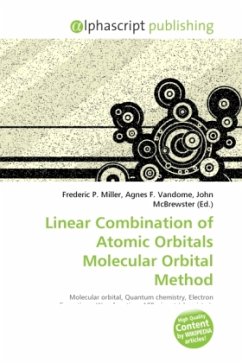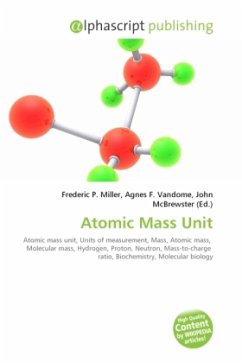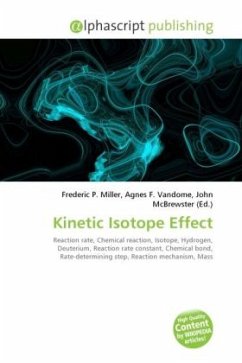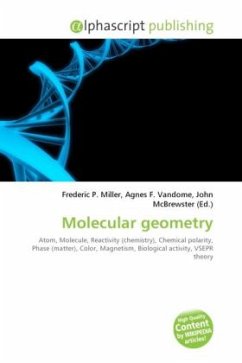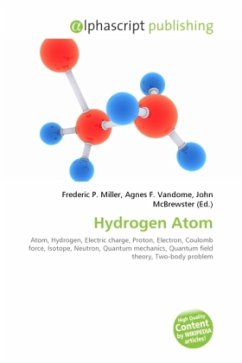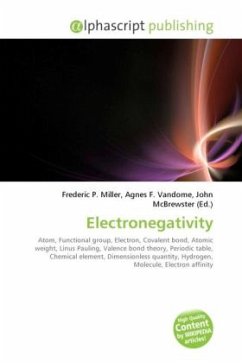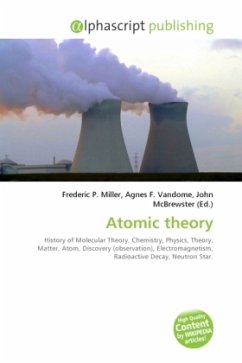
Atomic theory
Versandkostenfrei!
Versandfertig in 6-10 Tagen
45,99 €
inkl. MwSt.

PAYBACK Punkte
23 °P sammeln!
In chemistry and physics, atomic theory is a theory of the nature of matter, which states that matter is composed of discrete units called atoms, as opposed to the obsolete notion that matter could be divided into any arbitrarily small quantity. It began as a philosophical concept in ancient Greece and India and entered the scientific mainstream in the early 19th century when discoveries in the field of chemistry showed that matter did indeed behave as if it were made up of particles. The word "atom" from the ancient Greek adjective atomos, 'uncuttable' was applied to the basic particle that c...
In chemistry and physics, atomic theory is a theory of the nature of matter, which states that matter is composed of discrete units called atoms, as opposed to the obsolete notion that matter could be divided into any arbitrarily small quantity. It began as a philosophical concept in ancient Greece and India and entered the scientific mainstream in the early 19th century when discoveries in the field of chemistry showed that matter did indeed behave as if it were made up of particles. The word "atom" from the ancient Greek adjective atomos, 'uncuttable' was applied to the basic particle that constituted a chemical element, because the chemists of the era believed that these were the fundamental particles of matter. However, around the turn of the 20th century, through various experiments with electromagnetism and radioactivity, physicists discovered that the so-called "indivisible atom" was actually a conglomerate of various subatomic particles chiefly, electrons, protons and neutrons which can exist separately from each other. In fact, in certain extreme environments such as neutron stars, extreme temperature and pressure prevents atoms from existing at all.



